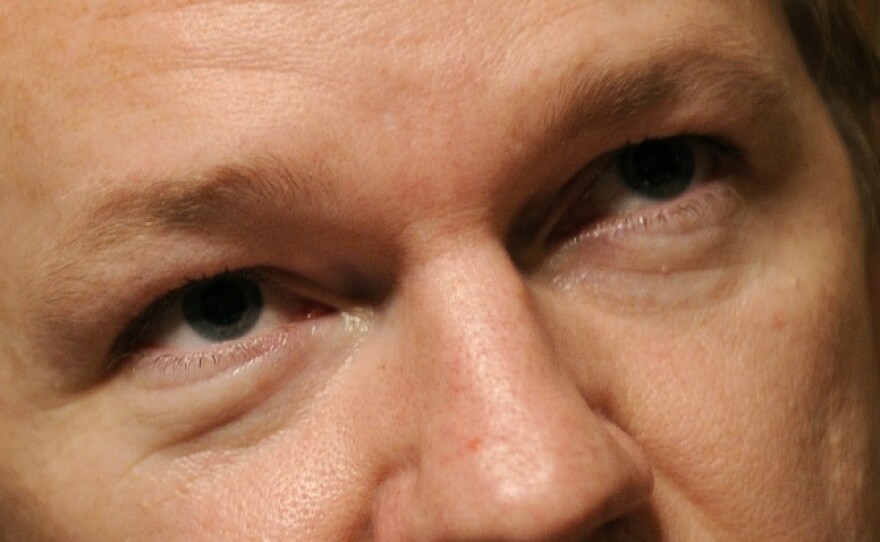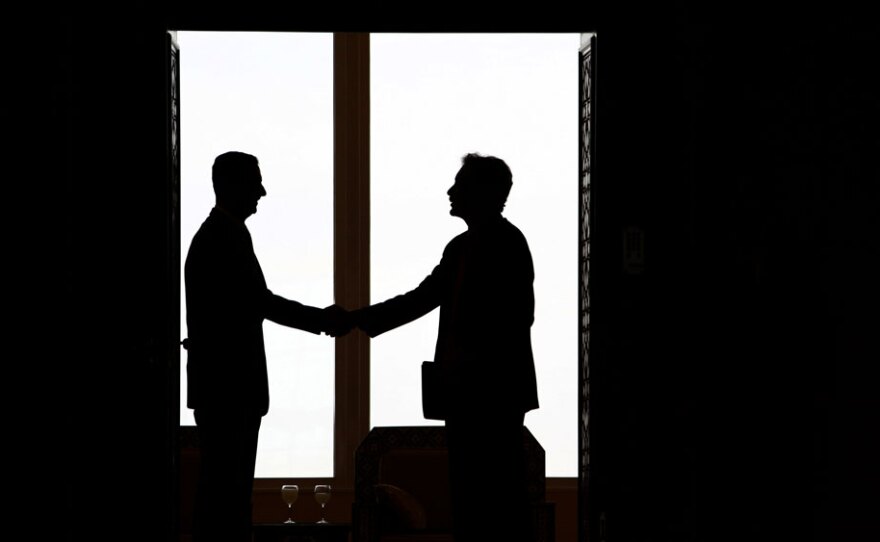WikiLeaks, an organization devoted to revealing secret documents, has made good on its promise to release a huge cache of confidential American diplomatic cables. The documents dump, which includes a huge sampling of the daily traffic between the U.S. State Department and some 270 embassies and consulates, pulls back the curtain on the sometimes messy business of diplomacy.
"By its very nature, field reporting to Washington is candid and often incomplete information," White House press secretary Robert Gibbs said in a statement Sunday. "It is not an expression of policy, nor does it always shape final policy decisions. Nevertheless, these cables could compromise private discussions ... and when the substance of private conversations is printed on the front pages of newspapers across the world, it can deeply impact not only U.S. foreign policy interests, but those of our allies and friends around the world."
WikiLeaks, in addition to making the cables available online, used an intermediary to provide them early to The New York Times, the German magazine Der Spiegel and Britain's Guardian newspaper weeks ago for release Sunday. The WikiLeaks website appeared to have been intermittently shut down Sunday.

A Generation Of American Diplomacy
Taken together, the quarter-million documents released Sunday span more than a generation of American diplomacy. Dating as far back as 1966 to the latest cable written as recently as this past February, the documents outline, among other things, a standoff over nuclear fuel transfers between the U.S. and Pakistan in 2007; a scenario for a reunited Korea should the North Korean government fall; and round-the-clock efforts on the part of the Obama administration to rein in Iran's nuclear program and Iran's effort to dominate the Middle East -- all issues on the front burner of U.S. foreign policy today.
On the subject of Iran, the cables track Washington's view of Iran's three-pronged strategy to emerge as the most powerful force in the Middle East. Diplomats assume that Iran is developing a nuclear weapons capability and missile systems, that it wants regional hegemony across the Middle East, and that the leadership there represented a growing danger to Israel.
The cables also make clear that without an embassy in Tehran and with very limited American presence inside the country, the U.S. has a dearth of firsthand intelligence of what is going on there, the news organizations who saw the cables reported.
According to one cable, William Burns, U.S. undersecretary of state, finds a sympathetic hearing about Iran in a less expected quarter when he visits Baku, the capital of one of Iran's closest neighbors, Azerbaijan, in February 2010.
According to a confidential account of a meeting with President Ilham Aliyev, the Azerbaijan president tells Burns "that although the visible side of Azerbaijan's relations with Iran appears normal," the substance was very different. "I do not exclude that relations will become more difficult," he added. Aliyev tells Burns that Tehran was "financing radical Islamic groups and Hezbollah terrorists." Aliyev also said, according to the cable, that the situation was "very tense within Iran and believed it could erupt at any time."
Recent Cables
The cables also detail recent meetings with the Yemeni president after U.S. strikes in his country against alleged terrorists. President Ali Abdullah Saleh says he will tell the Yemeni parliament that the bombs that fell were Yemeni, not American ones. He jokes about smuggling in his country and says he's concerned about drugs and weapons, but doesn't object to "good whiskey" being smuggled in. He's the ruler of a conservative Muslim country.
The released cables also talk about Afghan President Hamid Karzai's half-brother, Ahmed Wali Karzai. American officials met with him in late 2009 and early 2010. U.S. diplomats made clear in their cables that they don't trust him. In the middle of a cable back to Washington, they put in the following: "Note: While we must deal with AWK as the head of the Provincial Council, he is widely understood to be corrupt and a narcotics trafficker."
Another cable reads: Karzai "demonstrated that he will dissemble when it suits his needs." It says he clearly did not appear to "understand the level of our knowledge of his activities. We will need to monitor his activity closely, and deliver a recurring, transparent message to him about the limits of American tolerance."
The concern is that if he didn't know the level of American surveillance before, he knows it now -- thanks to the release of these dispatches.
Unflattering Comments
Even the less sensitive areas outlined in the cables will have the State Department scrambling to make amends to leaders who were never supposed to hear the unvarnished comments passed between American diplomats.
The German chancellor is referred to as Angela "Teflon" Merkel. Karzai is said to be "driven by paranoia." North Korean leader Kim Jong Il is said to suffer from epilepsy. Libyan leader Moammar Gadhafi's full-time nurse is called a "hot blond." That's part of the reason why Secretary of State Hillary Clinton and top State Department officials around the world have been on the phones calling foreign leaders to prepare them for the disclosures.
On Sunday, Pentagon spokesman Bryan Whitman condemned the "reckless disclosure" of the documents. In a statement, he outlined steps the Defense Department has taken to prevent further leaks, including changing the way classified material is moved to unclassified systems.
Just how WikiLeaks got these cables and two other caches of secret U.S. documents is still a matter of debate. The belief is that Army intelligence analyst Bradley Manning may have been behind the leak. He allegedly told a computer hacker, Adrian Lamo, that he had downloaded the documents and delivered them to WikiLeaks. Lamo reported Manning to federal authorities, and Manning has been charged with illegally leaking classified information. He faces a possible court-martial and, if convicted, a lengthy prison term.
Copyright 2022 NPR. To see more, visit https://www.npr.org. 9(MDAzMjM2NDYzMDEyMzc1Njk5NjAxNzY3OQ001))







